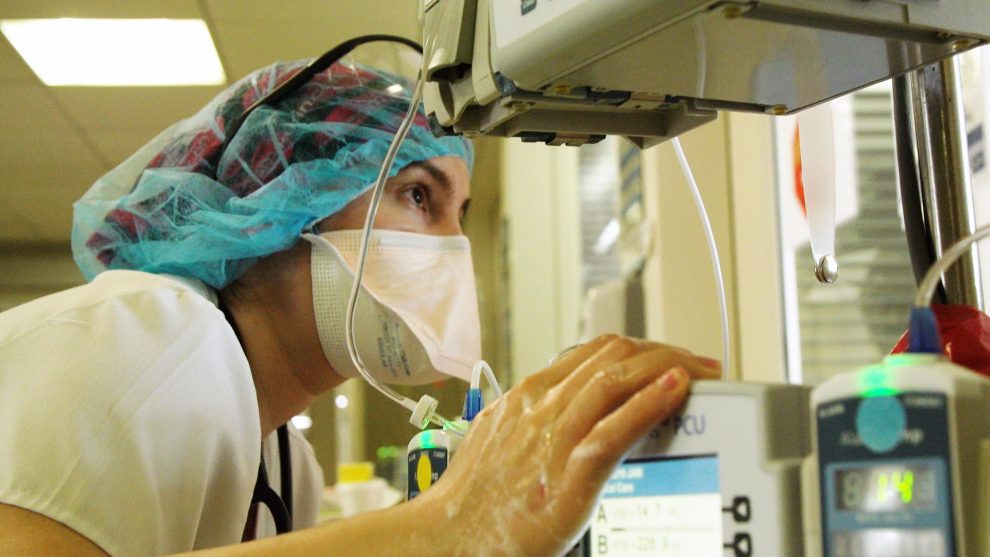Men with low testosterone levels that contract COVID-19 are at far greater risk of dying from the virus, a study has found.
A recent study found men are twice as likely to die from the coronavirus, but clinicians have been unable to determine why this is.
But a study from a German hospital of 45 COVID-19 patients admitted to intensive care reveals the male sex hormone testosterone may play a key role.
The hormone is known to help regulate the body’s immune response but when a man has low levels of testosterone, the immune system is not kept in check and can go haywire following infection.
This leads to a so-called cytokine storm which happens when the immune system goes out of control as it tries to kill the pathogen.
A cytokine storm eventually begins damaging the body itself and, if left unchecked, can be fatal.
The researchers assessed the first 45 laboratory-confirmed COVID-19 patients admitted to the ICU at the University Medical Center Hamburg-Eppendorf.
Pastor of Cities Church Speaks Out After Don Lemon’s Arrest
Behind the scenes: Trump and White House rally behind Noem as ‘radicals’ demand ouster
US escalates sanctions on Iranian officials as Trump considers military options
WATCH: If Trump Bowed to Dems on Narco-Boats, Nearly 1 Million Americans Could Die, And 126 Narco-Terrorists Would Be Alive – That’s What Today’s Democrats Are Demanding
EXCLUSIVE: Epstein emails to be released as DOJ says no criminal or inappropriate conduct by Trump
Reporter’s Notebook: Senate funding deal hits snag as Graham presses sanctuary city vote
Watch: Trump’s Hilariously Honest Response to Reports He Fell Asleep During the Last Cabinet Meeting
Texas Issues Disaster Declaration as Flesh-Eating Parasite Spreads North from Mexico
Federal agents arrest 3 more people in connection to Minnesota church storming
Accused US killer captured in Mexico after monthslong international manhunt for recycling bin murder
Damning Video: Trump Plays Elizabeth Warren’s Eulogy for Alex Pretti Over Footage of Pretti Wildly Attacking ICE, Destroying Property – the Result Is Truly Blistering
Ilhan Omar Has Bizarre Response When Questioned About What She Did After Being Sprayed by Vinegar
Federal judge backs away from threat to hold ICE leader in contempt
Trump and GOP eye midterm convention cities in high-stakes bid to hold House, Senate
Trump officials work to ease tensions in Minneapolis as secretive negotiations progress
Thirty-five were men and ten were women, with seven patients requiring oxygen and 33 of them needing ventilation. Nine men and three women died.
Hormone levels of each patient were assessed on their first day in ICU, before they had received any invasive procedures.
Samples from the COVID-19 patients were tested for 12 hormones, including testosterone and dihydrotestosterone.
Testosterone is key in how the body initiates and regulates various immune responses, including fighting viral infections.
It plays a particular important role in men’s immunity as it is the main male sex hormone.
Of the male COVID-19 patients sent to ICU at the German hospital, more than two thirds (68.6 per cent) recorded low levels of testosterone.
In contrast, the majority of female patients (60 per cent) had elevated testosterone levels.
While low levels of testosterone can not control the immune response in men, the study found that in female COVID-19 patients, higher testosterone levels were linked to a more significant inflammatory response.
Professor Gülsah Gabriel from the Leibniz Institute for Experimental Virology in Hamburg, who was involved in the research, told MailOnline: ‘The majority of male COVID-19 patients had low testosterone levels.
‘Of those male COVID-19 patients who died, the majority also had low testosterone levels.
‘Thus, low testosterone levels in men seem to be a risk factor for severe and even fatal disease outcome in men upon infection with so-called “cytokine inducing” respiratory viruses.’
Story cited here.
























